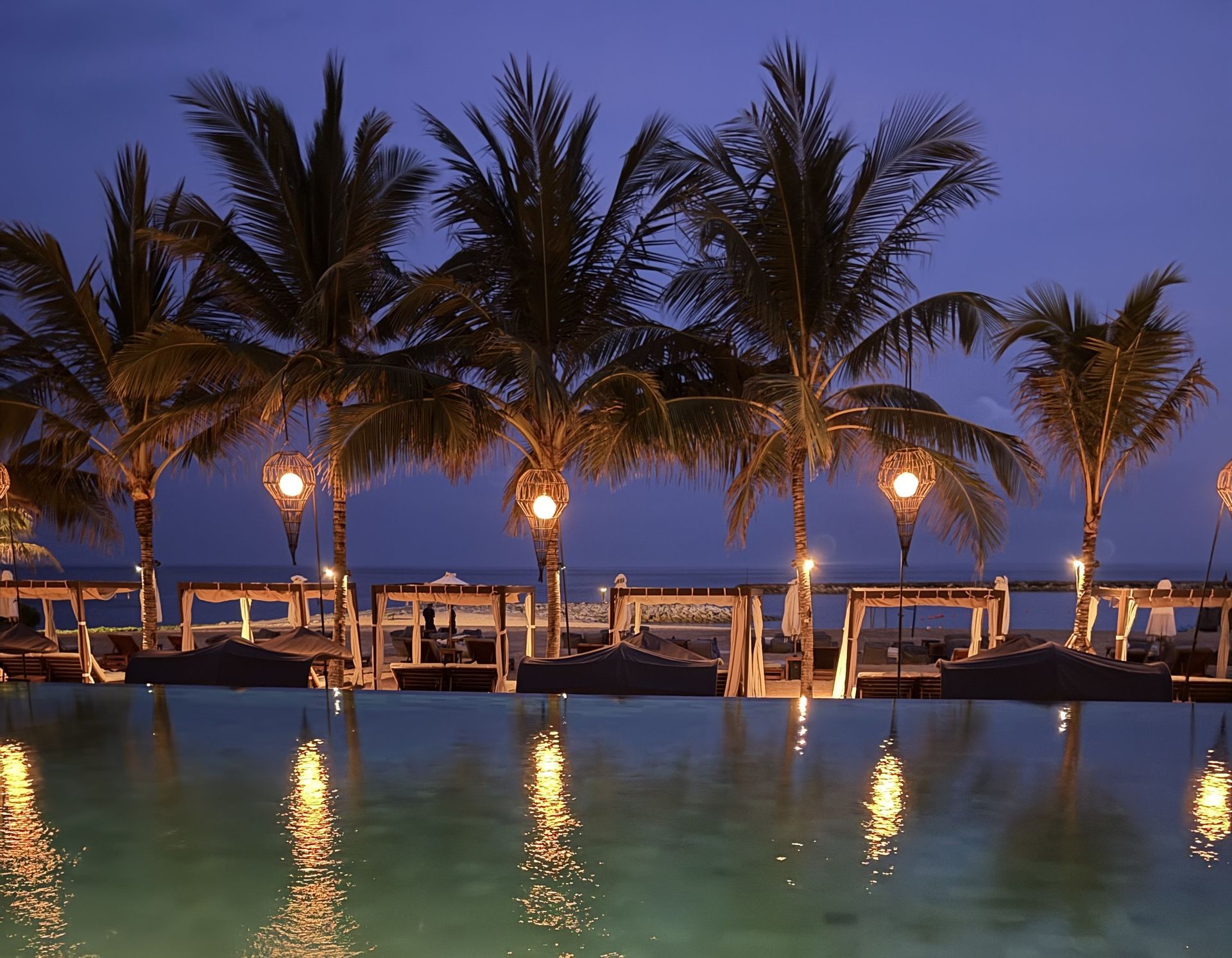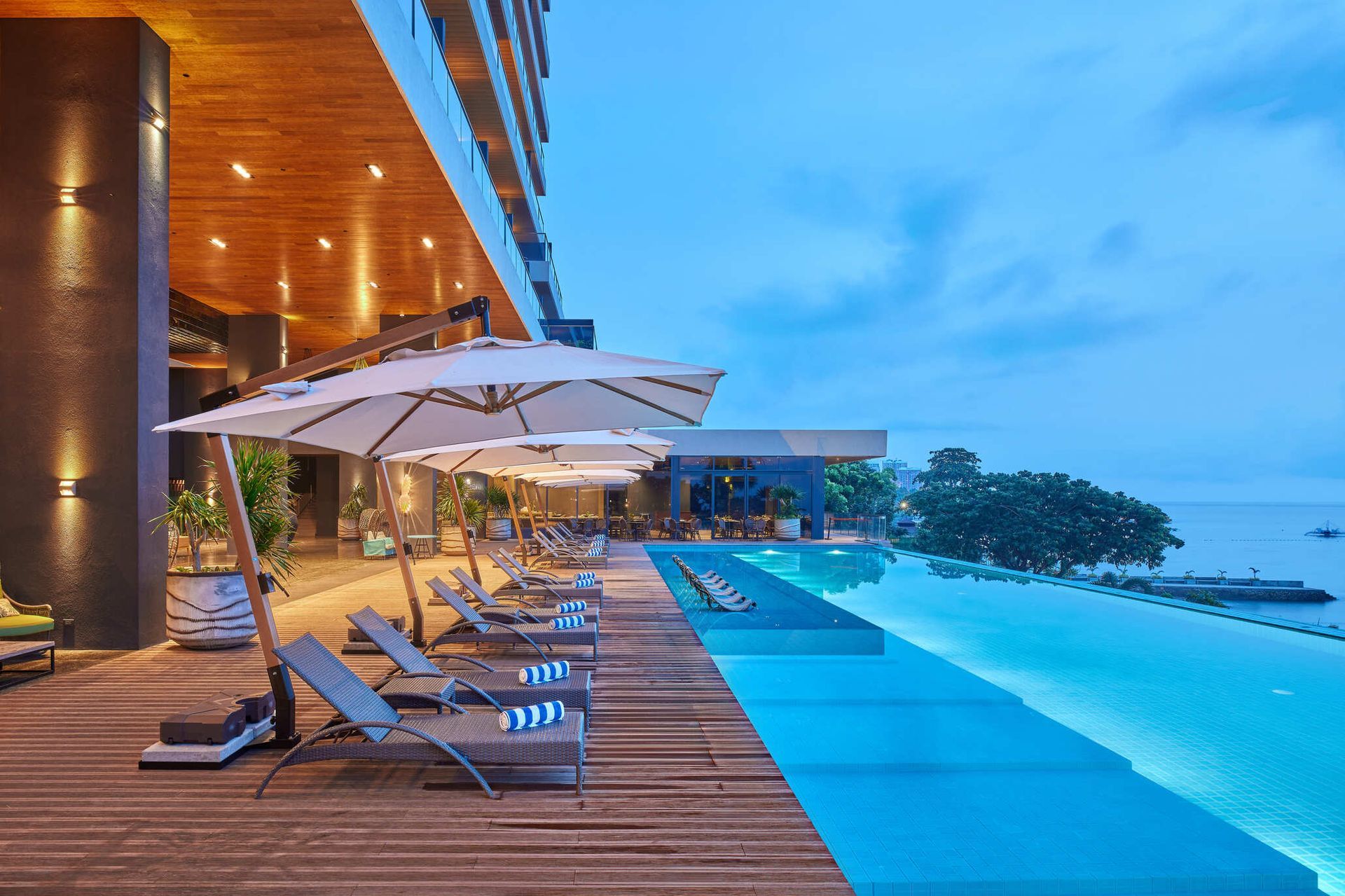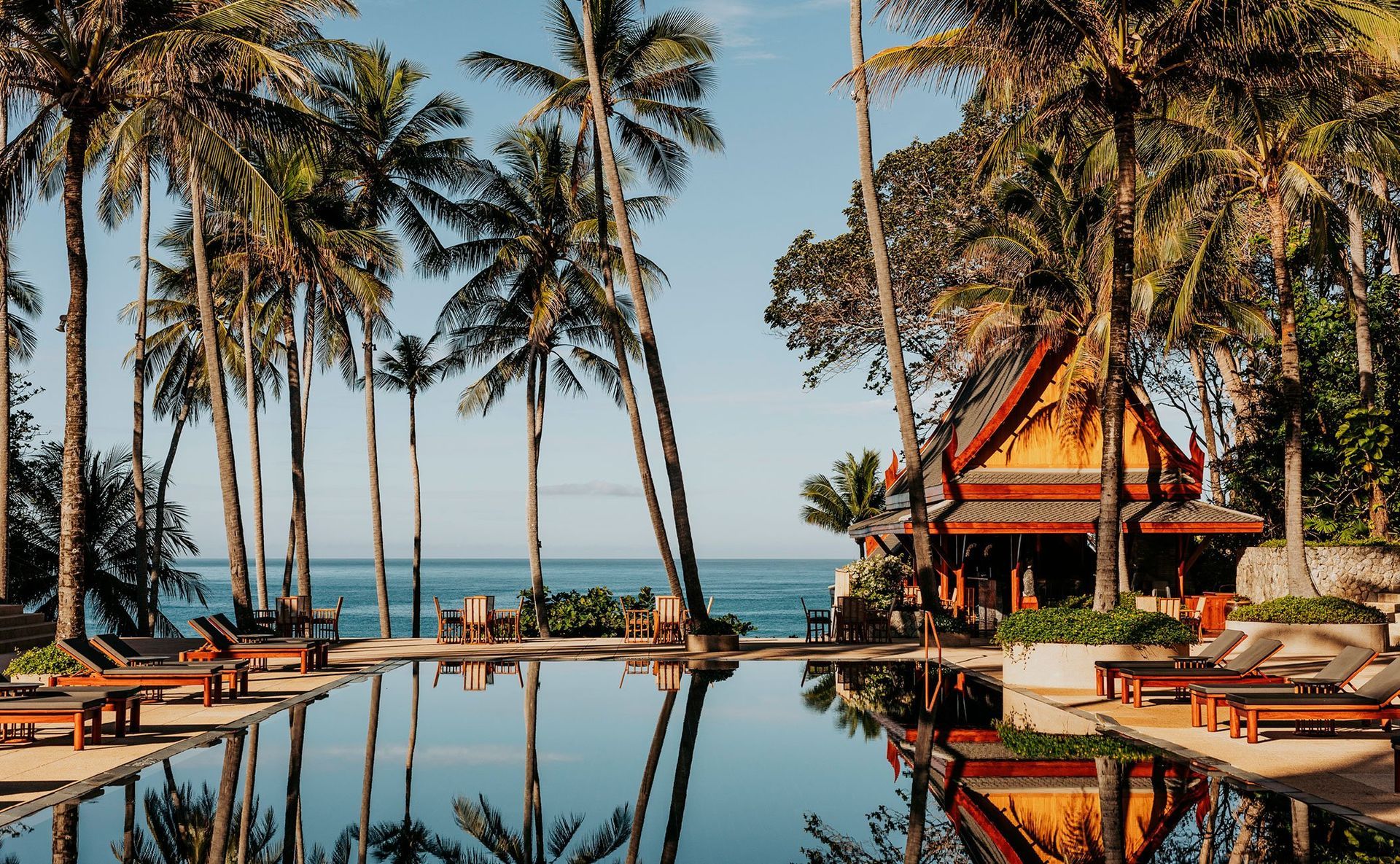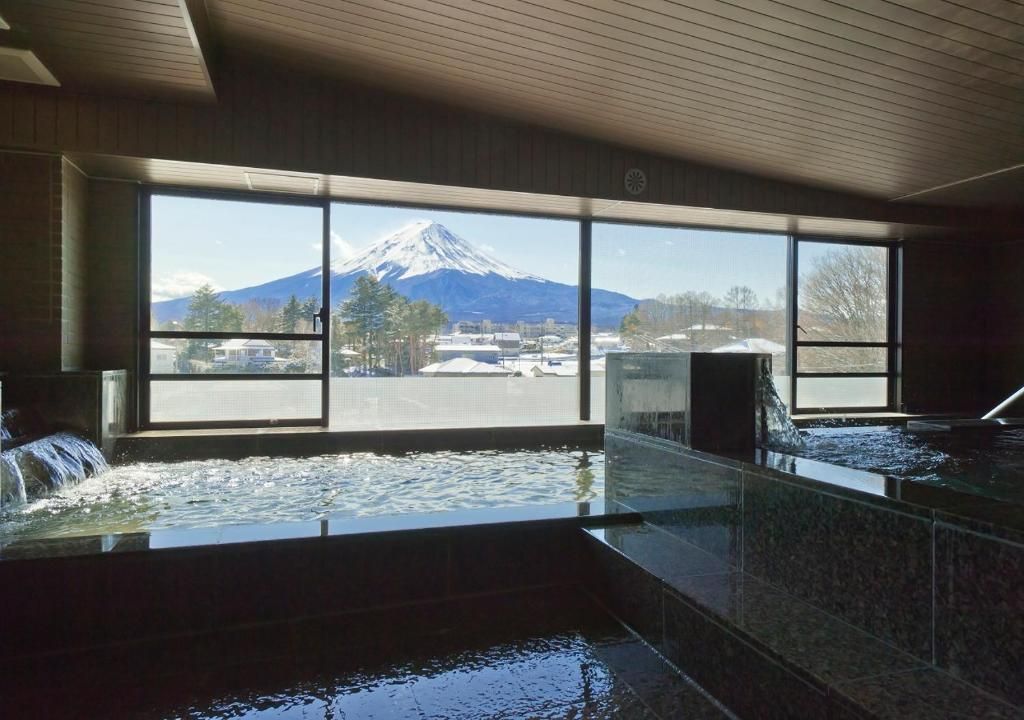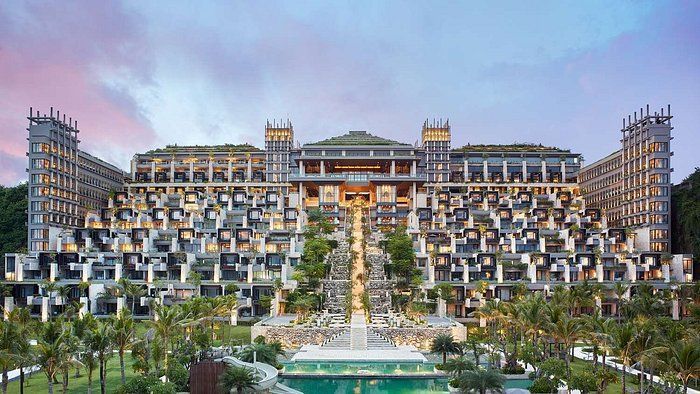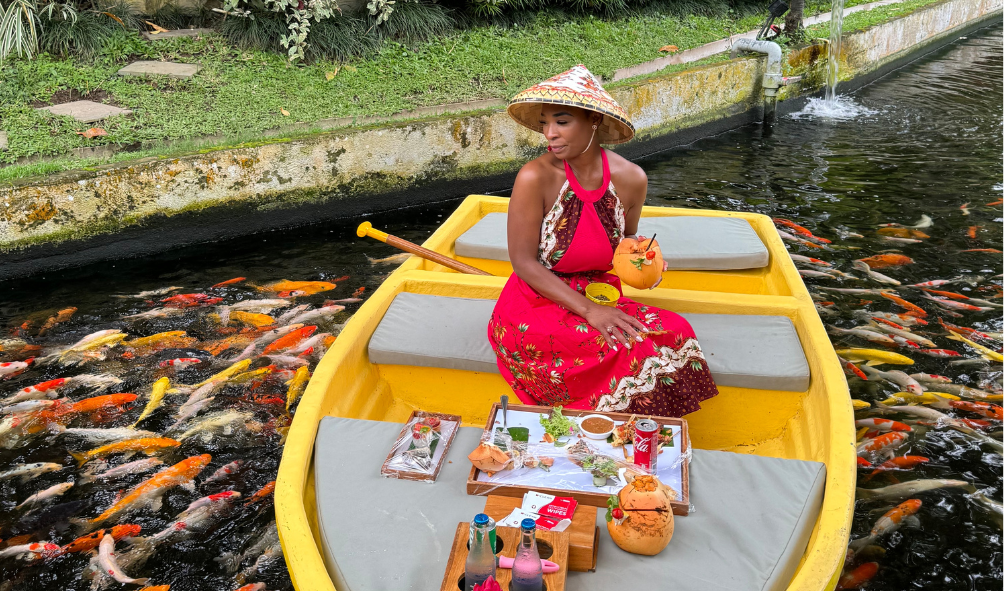Asia Awaits
Cebu, known for its stunning beaches and rich marine biodiversity, offers one of the most exhilarating experiences for nature lovers: swimming with whale sharks. These gentle giants draw thousands of visitors eager to encounter them up close, making it a highlight of any trip to the Philippines. The combination of thrilling whale shark encounters and the pristine, unspoiled beaches truly embodies the spirit of adventure and relaxation that the Philippines is famed for.

Beyond the thrill of swimming alongside whale sharks, Cebu boasts various activities that cater to different interests. From exploring vibrant coral reefs to lounging on white sand beaches, visitors can find something for everyone. Local tours often include additional destinations such as Sumilon Island, further enriching the experience.
Engaging with local communities and experiencing their unique culture adds another layer to this unforgettable journey. Whether one seeks adventure in the water or peace on a secluded beach, Cebu stands out as a must-visit destination.
Understanding Whale Sharks in Cebu
Cebu offers a unique opportunity to observe whale sharks, the largest fish in the ocean. Knowledge of their biology, conservation efforts, and the best times to see them enhances the experience for visitors eager to connect with these gentle giants.
Biology and Behavior
Whale sharks can reach lengths of up to 40 feet and weigh over 20 tons. These creatures are filter feeders, primarily consuming plankton, small fish, and krill. They swim with their mouths open to filter food, making them non-threatening to humans.
Known for their distinctive markings, each whale shark has a unique pattern of spots, similar to human fingerprints. They often inhabit warm waters, making the coastal areas of Cebu ideal for sightings. Whale sharks are solitary by nature but can be spotted in groups during feeding times.
Conservation Efforts
Despite their size, whale sharks are a vulnerable species, facing threats from fishing, habitat loss, and marine pollution. Local governments in Cebu have initiated conservation programs to protect these animals.
Tourism initiatives in places like Oslob promote responsible interaction, emphasizing guidelines that help reduce stress on the sharks. NGOs work alongside local communities to monitor populations and educate visitors on sustainable practices.
Engagement in conservation efforts is crucial to ensuring the future of whale sharks and biodiversity in Cebu's waters.
Best Times for Encounters
The prime season for whale shark encounters in Cebu runs from November to June, with peak months from February to April. During this time, sightings are more frequent due to the feeding practices of local fishermen.
In Oslob, tourists may see up to ten whale sharks within a few meters of the shore. Visitors should plan their trips early in the day for the best chance of encountering these magnificent creatures, as they are most active in the morning hours.
Timing is critical, as both natural and tourism-related factors can influence whale shark behavior and availability.
Planning Your Adventure
Planning a diving adventure in Cebu is essential for a rewarding experience. It involves selecting a reputable tour operator, being mindful of responsible interaction with marine life, and ensuring that the right gear is packed for the journey.
Choosing the Right Tour Operator
Selecting a reliable tour operator is crucial for safety and enjoyment. He or she should look for operators with positive reviews and a solid track record in marine excursions. Consider those offering specialized whale shark tours in Cebu, like Fun Sun Dive Travel, which provide knowledgeable guides and well-maintained equipment.
Before booking, inquire about their sustainability practices. Responsible operators will ensure that their business practices do not harm the marine ecosystem. It's also beneficial to choose a company that prioritizes small group sizes, which enhances the overall experience.
Responsible Interaction Guidelines
When engaging with whale sharks, adhering to responsible interaction guidelines is vital for their protection. Tourists must never touch or chase these gentle giants. Maintaining a respectful distance allows for an unobtrusive observation experience.
Operators should enforce strict guidelines, such as limiting the number of swimmers near the sharks and using non-motorized boats when possible. Additionally, preparing participants on ethical interaction protocols before heading out is important. This helps ensure that encounters are safe for both marine life and visitors.
What to Bring
Packing the right gear will enhance the adventure. Essential items include swimwear, biodegradable sunscreen, and a reef-safe snorkeling mask. He or she should also consider a rash guard for sun protection and thermal comfort while in the water.
A waterproof camera will help capture unforgettable moments. Additionally, bringing fresh water and snacks is wise to stay hydrated and energized during the tour. Lastly, ensure to have a reliable dry bag for personal items to protect against water damage throughout the day.
Cebu's Unspoiled Beaches
Cebu boasts a variety of stunning beaches, each offering unique experiences and pristine environments. From the northern to the southern regions, visitors can find both popular and hidden gems that showcase the island's natural beauty and tranquility.
North Cebu Beaches
North Cebu is home to several picturesque beaches known for their white sands and clear waters. Malapascua Island, for instance, is famous for its diving spots and idyllic beach atmospheres. Bantayan Island, another popular destination, features long stretches of powdery sand perfect for relaxation.
Logon Beach, located in Malapascua, attracts scuba divers for its vibrant aquatic life. The area offers a laid-back vibe, making it ideal for those seeking tranquility. Nearby, Maravilla Beach provides a serene escape where visitors can enjoy fewer crowds and breathtaking views.
South Cebu Beaches
The southern region of Cebu, particularly around Badian and Moalboal, offers some breathtaking beach experiences. Lambug Beach is noteworthy for its serene environment and golden sands. This hidden gem is less frequented, allowing visitors to unwind in peace.
Panagsama Beach is known for its diving opportunities, particularly for seeing sardine runs. The clear waters and vibrant marine life make it a top spot for snorkeling as well.
Kawasan Falls, while not a beach, is nearby and offers refreshing swimming spots amidst stunning natural scenery, making it a perfect complement to a beach visit.
Secluded Island Spots
Cebu's hidden island beaches provide travelers with pristine environments away from the crowds. Malapascua Island has secluded spots where visitors can escape into nature.
Another lesser-known destination is Carnaza Island, featuring untouched landscapes and tranquil waters. Here, visitors can relax in solitude and enjoy snorkeling opportunities.
Bantayan's Virgin Island also stands out for its secluded shores and crystal-clear waters. It’s a perfect place to explore, away from the commercialized areas of Cebu. Each of these locations offers unique encounters with nature, ideal for those seeking a peaceful getaway.
Local Culture and Cuisine
Cebu is a vibrant island that showcases its rich heritage through its culinary offerings and dynamic celebrations. Local culture and cuisine are intricately connected, providing visitors with a unique experience of Cebuano life.
Culinary Delights
Cebuano cuisine is renowned for its bold flavors and unique dishes. One iconic dish is Cebu lechon, which is roasted to perfection and cherished for its crispy skin and tender meat. It is often featured during special occasions and celebrations.
Other popular dishes include sinigang, a savory sour soup, and kinilaw, a fresh ceviche made with raw fish marinated in vinegar and citrus. Local markets brim with fresh fruits like mangoes and lanzones, highlighting the island's agricultural bounty.
Street food is also a delightful adventure. Vendors offer grilled items such as isaw (grilled chicken intestines) and balut (fertilized duck egg), providing authentic local flavors. Visitors can explore lively spots like Larsian BBQ for a true taste of Cebu's culinary scene.
Festivals and Events
Cebu is home to vibrant festivals that reflect its rich cultural heritage. The Sinulog Festival, held every January, honors the Sto. Niño and features grand parades with traditional dances, colorful costumes, and street parties. It attracts thousands of local and foreign tourists.
Another notable event is the Kadaugan sa Mactan, commemorating the victory of Lapu-Lapu over Ferdinand Magellan. It includes historical reenactments and various cultural showcases.
Food plays a significant role in these celebrations, with local specialties served during the festivities. The blend of culture, cuisine, and community spirit makes each event an unforgettable experience for visitors.
Accommodations and Amenities
Cebu offers a range of accommodations designed to enhance the travel experience, from luxurious beachfront resorts to eco-friendly stays that promote sustainability. Each option provides unique amenities, ensuring visitors can find the right fit for their needs and preferences.
Beachfront Resorts
Cebu's beachfront resorts are known for their stunning views and direct access to pristine beaches. Visitors can enjoy a variety of amenities such as infinity pools, private cabanas, and world-class dining options.
Many resorts, like the Shangri-La’s Mactan Resort & Spa, feature recreational activities, including water sports and diving excursions.
Key amenities often include:
Spacious accommodations with ocean views
Spa services for relaxation
Guided tours for whale shark encounters
These resorts prioritize luxury and convenience, making them ideal for travelers seeking relaxation and adventure.
Eco-friendly Stays
For eco-conscious travelers, Cebu provides a selection of sustainable accommodations. These eco-friendly stays focus on minimizing environmental impact while offering comfort and quality service.
Properties such as Bamboo House utilize local materials and energy-efficient technologies to create a sustainable environment.
Notable features often include:
- Organic gardens supplying fresh produce
- Solar power for energy needs
- Eco-tours that highlight local wildlife and natural beauty
- These accommodations appeal to those who want a meaningful stay, combining comfort with responsible travel practices.
Getting There and Around
Traveling to Cebu is straightforward, with multiple options available for arriving in the region, including international flights and ferry services. Once in Cebu, local transportation options are abundant, making it easy to explore the island's attractions, from whale shark encounters to pristine beaches.
Travel to Cebu
Cebu is well-connected by the Mactan-Cebu International Airport, which hosts numerous domestic and international flights. Traveling from major cities like Manila or Clark is efficient, with airlines offering several daily flights.
Ferries also operate between Cebu and nearby islands such as Bohol and Dumaguete. These ferry services provide a scenic way to arrive, with travel times ranging from one to two hours. It's wise to book tickets in advance during peak seasons, especially when planning whale shark excursions in Oslob.
Local Transportation Options
Once in Cebu, visitors have various ways to navigate around the island. Jeepneys, traditional open-air vehicles, serve as the primary mode of public transport. They are affordable and efficient for short distances, with fares typically starting at 9 PHP.
Taxis and ride-hailing services, like Grab, are also widely available. These provide a more comfortable option for navigating longer distances or traveling in groups.
Additionally, renting a motorcycle or scooter can be an exciting way to explore Cebu's landscapes at one's own pace. Various rental companies are found around tourist spots, and rates typically range from 300 to 600 PHP per day.
These transportation methods ensure easy access to Cebu's beautiful beaches and whale shark watching locations.
Safety and Regulations in Marine Encounters
Engaging with marine wildlife, particularly in the Philippines' waters, requires adherence to safety protocols. This ensures not only the safety of individuals but also the well-being of marine animals.
Before participating in activities like whale shark encounters, divers must receive a briefing on safety guidelines. A certified dive operator should lead these sessions, covering essential points such as:
- Proper Behavior: Swimmers should avoid sudden movements that might startle the creatures.
- Distance Maintenance: A respectful distance must be kept to reduce stress on marine animals.
In addition, dive boats are required to have specific safety equipment. Essential items include:
- Emergency Oxygen Tank: For immediate response if a participant needs assistance.
- Certified Staff Member: A crew member must be trained in First Aid and emergency oxygen use.
Dive operators are responsible for maintaining passenger manifests, ensuring that all participants are accounted for. Compliance with all regulations helps protect both the divers and the marine environment.
Participants should also be aware of local conservation efforts related to marine life. Understanding these initiatives promotes eco-friendly tourism that benefits both visitors and local ecosystems.
By following these guidelines, individuals can enjoy memorable marine encounters while contributing to the preservation of the vibrant aquatic life in Cebu's waters.
Extension Activities in Cebu
Cebu offers a variety of extension activities that complement its famous whale shark encounters. These include incredible diving spots and enriching land excursions that showcase the region's natural beauty and adventure opportunities.
Diving Sites
Cebu is home to several renowned diving sites, attracting divers from around the world. Moalboal is famous for its vibrant coral reefs and the stunning sardine run, where thousands of sardines create mesmerizing underwater displays. Malapascua Island is another highlight, known for the thresher shark sightings that can be experienced early in the morning.
Additional sites such as Kansantee Beach and Sumilon Island provide opportunities to explore thriving marine biodiversity. For those interested in night diving, the waters around Pescador Island offer a unique experience with nocturnal marine life.
Land Excursions
Cebu's land excursions offer a glimpse into its rich culture and stunning landscapes. A popular option is a trek to Kawasan Falls, where visitors can enjoy the beauty of turquoise water and the thrill of canyoneering.
Another enticing excursion is visiting Osmeña Peak, the highest point in Cebu, offering breathtaking views of the surrounding island. Sirao Garden, often referred to as the "Little Amsterdam," provides vibrant floral displays and picturesque spots for photography.
Travelers can also explore historical landmarks in Cebu City, such as the Magellan's Cross and Basilica Minore del Santo Niño, to immerse themselves in the local heritage. Each of these excursions adds depth and adventure to a Cebu travel itinerary.
Environmental Sustainability and Tourism
Environmental sustainability is a crucial aspect of tourism in the Philippines, especially in regions like Cebu. The increasing number of tourists has led to growing concerns about the preservation of natural resources and local ecosystems.
Sustainable tourism practices aim to minimize the negative impact of tourism on the environment. This includes efforts to protect marine life, habitats, and pristine beaches.
Key initiatives to promote sustainability include:
- Responsible Tourism: Encouraging tourists to respect local cultures and environments.
- Eco-Friendly Activities: Offering experiences that support conservation efforts, such as guided tours focused on marine protection.
- Waste Management: Implementing proper waste disposal and recycling initiatives to reduce litter on beaches.
The Department of Tourism actively promotes campaigns like "It's More Fun in the Philippines," which emphasize sustainable practices. By engaging tourists in eco-friendly activities, the campaign fosters awareness about the importance of preserving natural beauty.
Local communities also play a vital role. They participate in conservation efforts and benefit from responsible tourism practices, enhancing their livelihoods while protecting their environments.
Ultimately, promoting environmental sustainability in tourism ensures that future generations can enjoy the beauty of destinations like Cebu's whale shark encounters and unspoiled beaches.
Frequently Asked Questions
This section addresses common inquiries regarding whale shark encounters and diving experiences in Cebu. It provides specifics about timing, locations, costs, expectations, and sustainability practices.
What is the best time of year to encounter whale sharks in Cebu?
The optimal time to encounter whale sharks in Cebu is typically from November to June. During these months, the waters are clearer, and sightings are more frequent, particularly in Oslob.
Are there specific locations in the Philippines recommended for diving with whale sharks?
In addition to Oslob, Tubbataha Reefs Natural Park and Donsol are notable locations for diving with whale sharks. These areas offer diverse marine biodiversity and opportunities for whale shark encounters.
What are the current prices for whale shark tours in Oslob, Cebu?
As of now, whale shark tours in Oslob generally range from PHP 1,500 to PHP 3,500 per person. Prices can vary based on inclusions such as snorkeling gear and boat rides.
Can tourists swim with whale sharks throughout the year in Cebu?
While whale sharks can typically be seen year-round in some areas, Oslob officially allows encounters mainly from November to June. Sightings outside this period are less predictable.
What should one expect from a whale shark encounter tour package in Oslob?
Participants can expect a guided experience that includes a short briefing on safety procedures. The tour often features supplies like snorkeling gear and a boat ride to the whale shark area.
What tips are essential for a sustainable and responsible whale shark encounter?
Tourists should prioritize responsible practices during encounters, such as maintaining a safe distance and avoiding flash photography. Supporting operators that adhere to sustainable tourism practices is also crucial for preserving these magnificent creatures.
